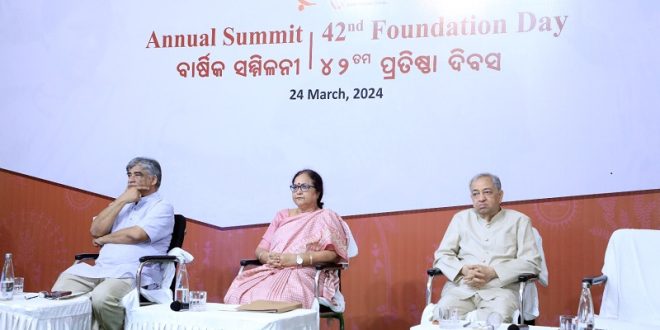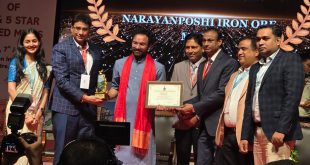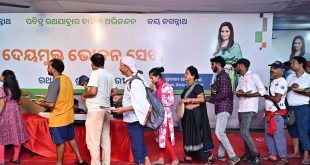Bhubaneswar: As India stands committed to reduce emissions intensity of its GDP by 45 percent by 2030 according to its Nationally Determined Contribution, it is high time the Odisha government to incentivize the farmers for adopting environmentally friendly practices, which can help to mitigate the effects of climate change, said development economist Satya S Tripathi at the 43rd Foundation Day lecture of the Centre for Youth and Social Development (CYSD) titled, “Odisha @2036 – Leveraging Pathways to a Green Economy Transition.”
The agriculture sector has the potential to both emit and sequester carbon – the process of storing carbon in soil, added Tripathy, who is also the Secretary General of Global Alliance for Sustainable Planet. The farmers, who practice natural and organic farming, help a long way in carbon sequestration. Such farmers should be incentivized. Citing at the Andhra Pradesh Model, he said that the farmers of Andhra Pradesh are paid Rs 40,000 per hectare of land for their contribution to checking emission and increasing soil fertility and thus help mitigating the impacts of climate change, he added.
He said, “We should learn from the tribals – who are the most intuitive, conscious and earth-bound people. Their agricultural practices have a lot of significance not only to check the carbon footprints, but to ensure food security and sustainable livelihoods.”
“We must keep in mind that the planet is not only for the humans, but for all the 80 lakh species on the planet,” Tripathi underlined.
As we explore challenges and opportunities for Odisha in leveraging investments in nature-based solutions, CYSD has spearheaded a comprehensive Climate-Resilient Agriculture (CRA) initiative in Odisha, impacting over 600,000 individuals across 1,133 villages in 27 blocks of 10 districts, said CYSD’s co-founder Jagadananda. “Our CRA initiatives are an extension of our commitment to empowering communities and building resilience against climate change impacts. By integrating traditional wisdom with modern innovations, our efforts aim at promoting sustainable livelihoods and food security for vulnerable communities in Odisha and contributing to creating a resilient Earth,” he added.
CYSD’s approach to CRA focuses on empowering small and marginalised farmers in tribal-dominated areas of Odisha, covering 1.06 lakh small and marginal farmers, out of which, 83% are women and 72% belong to indigenous communities. Around 1,600 champion farmers are models for the entire farming community. The initiative has witnessed remarkable success, with 15,638 farmers embracing natural farming practices, covering an expansive 6,326 hectares of land. Moreover, climate-resilient agricultural practices have been implemented on 62,500 acres of land by 58,000 households.
Speaking on the occasion, Prof. Geetanjali Dash, Vice-Chancellor of Berhampur University underlined the importance of student engagement with communities to foster empathy, social responsibility and practical learning, enriching both education and society. She highlighted Berhampur University’s collaboration with CYSD to promote student-community engagement.
Chandra Sagaria from Kundura, Kaberi Durua and Raimati Durua of Kerimity under Kundura block in Koraput district were felicitated by Tripathi for their contribution to conservation of soil and forest.
 Update Odisha-Latest Odisha News I Breaking News Get latest news on Odisha, Govt. Jobs, OSSC, OPSC, Entertainment, Crime, Sports, and Education
Update Odisha-Latest Odisha News I Breaking News Get latest news on Odisha, Govt. Jobs, OSSC, OPSC, Entertainment, Crime, Sports, and Education



